
The Bottom Line
Introduction & Drive Details
AMD has ushered in the PCIe Gen4 era with their newest processors and chipsets. For the past couple of years AMD has been making inroads with enthusiast by offering better value with their Ryzen Series platforms. AMD's 1xxx Ryzen and 2xxx platforms, while powerful, were no threat to Intel's performance superiority. Now, with the launch of their 3xxx Ryzen technology, AMD has pulled off the seemingly impossible feat of supplanting Intel as the performance king.
Enthusiasts have gone crazy for AMD's Zen 2 platform and for good reason. Zen 2 brings with it more performance for less money than anything Intel is serving up these days. For these reasons, AMD has almost overnight become the De Facto King of the enthusiast space. Additionally, Zen 2 brings to the masses more forward technology than Intel currently has to offer.
One of the most interesting of the many new technologies that are baked into Zen 2 is PCIe Gen4. PCIe Gen4 offers double the bandwidth of current PCIe Gen3 based technology, offering huge potential for increased performance via PCIe bus. This is music to the ears of storage enthusiasts, because storage performance is one place where users can immediately reap the benefits of PCIe Gen4's massive bandwidth.
If you want a blazing fast PCIe Gen4 SSD, there is only one game in town with 2 players - AMD and Phison. Phison is the first and only company shipping PCIe Gen4x4 NVMe SSD solutions. AMD is the first and only company to deliver PCIe Gen4 platforms in the consumer space. Just one more reason to get onboard the AMD bandwagon.
On our bench today, we have Corsair's implementation of Phison's E16 PCIe Gen4 x4 SSD controller. Corsair's Force Series MP600 is an M.2 2280 NVMe SSD available in 500GB, 1TB and 2TB models. Let's dive in and take a closer look:
Drive Details
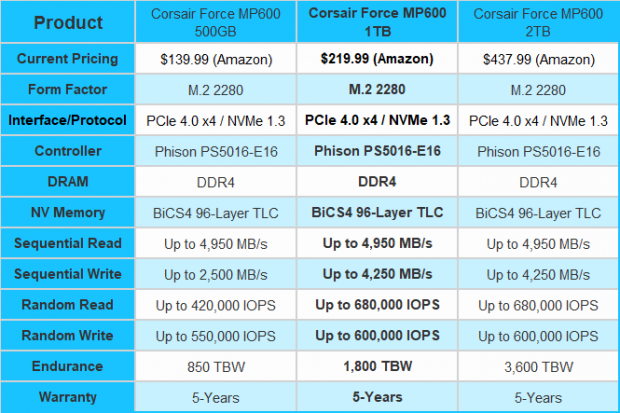
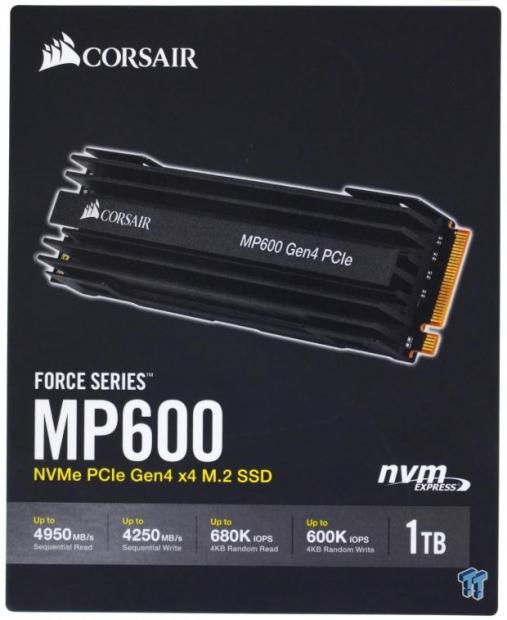
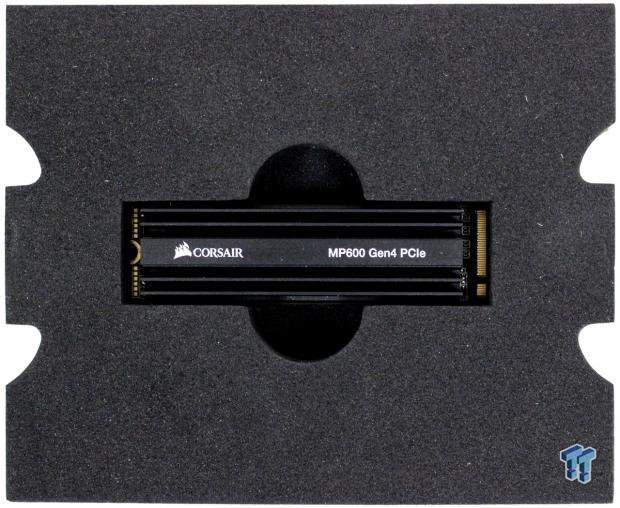


Corsair chose to pump out their Force MP600 SSDs with a beefy aluminum heat sink. This will keep the venerable Phison E16 controller from thermal throttling under extended heavy workloads. On top of that, we think the large black heat sink makes the MP600 dangerously attractive and a nice compliment to any motherboard.
We will note that the heat sink is removable for those of you that wish to use your MP600 with your motherboard's integrated SSD heat sink, or if you prefer not to have a heat sink at all.

Synthetic Benchmarks: CDM & Anvils
CrystalDiskMark
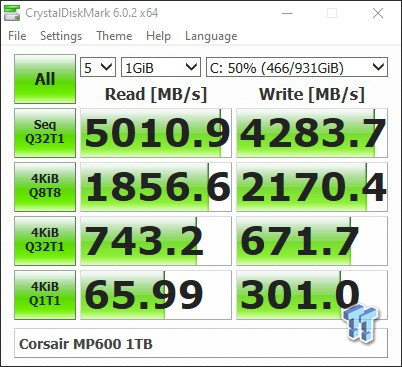
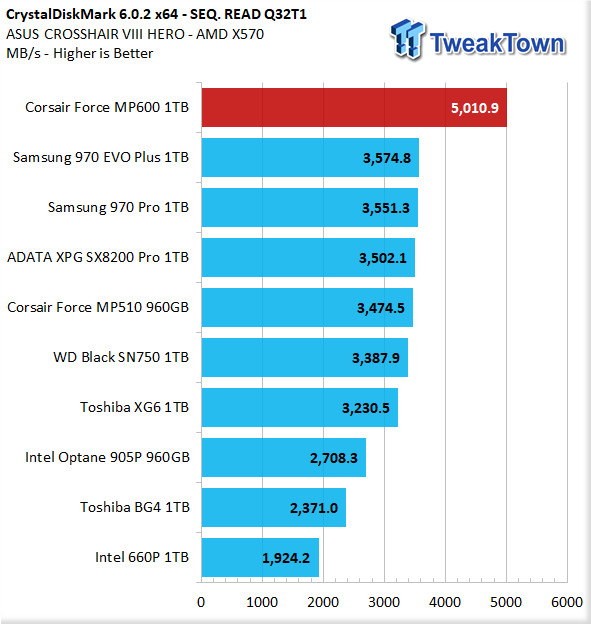
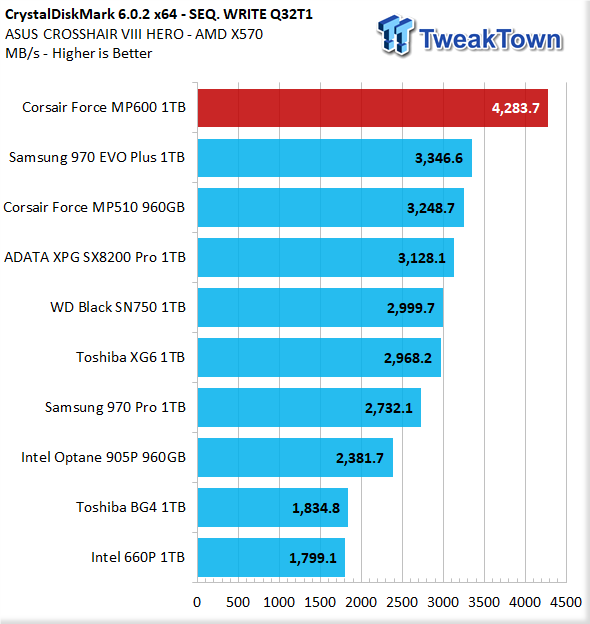
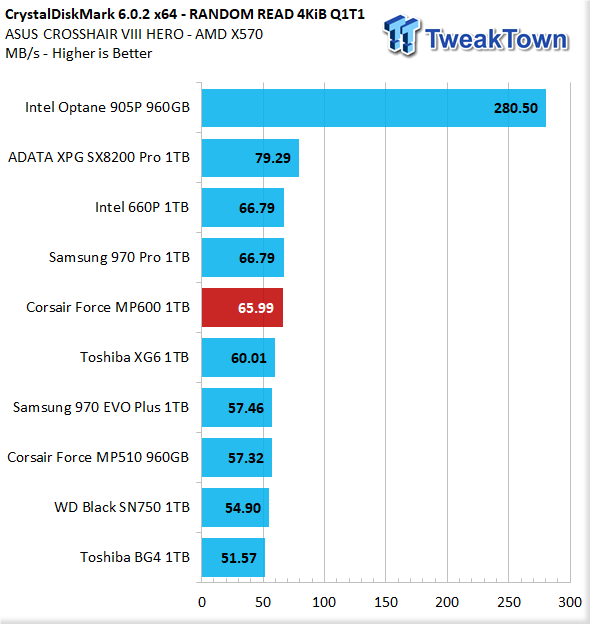
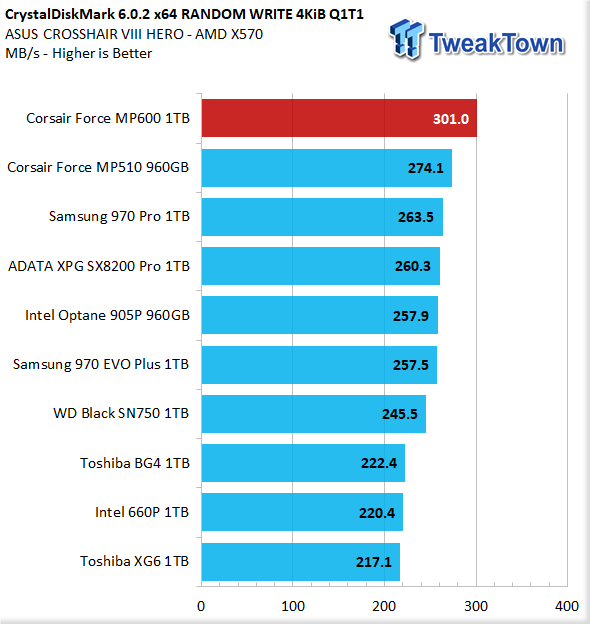
Corsair used CrystalDiskMark to establish their sequential performance specifications of 4,950MB/s read, and 4250MB/s write. We had no problem meeting and exceeding factory specifications even though we ran ours as an OS disk 50% filled with data. The MP600's PCIe Gen4 interface allows for unrivaled sequential performance in the consumer space.
As impressive as the sequential numbers are, we are similarly impressed with the random performance the MP600 is serving up at 4KiB Q1T1. This indicates that the MP600 will deliver excellent real-world performance.
Anvil's Storage Utilities
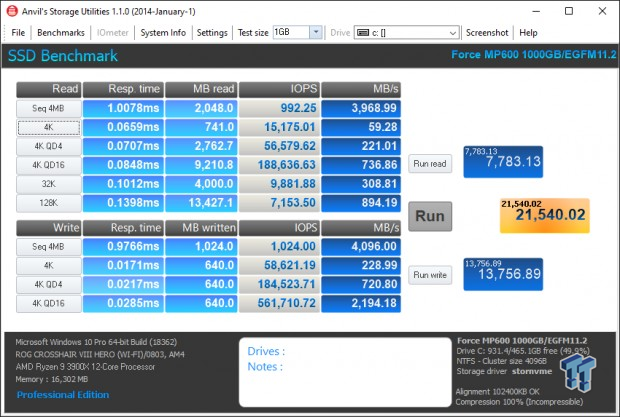
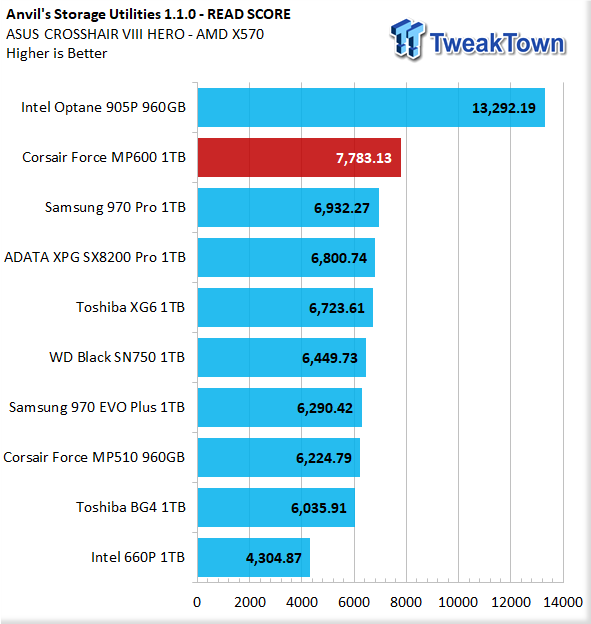
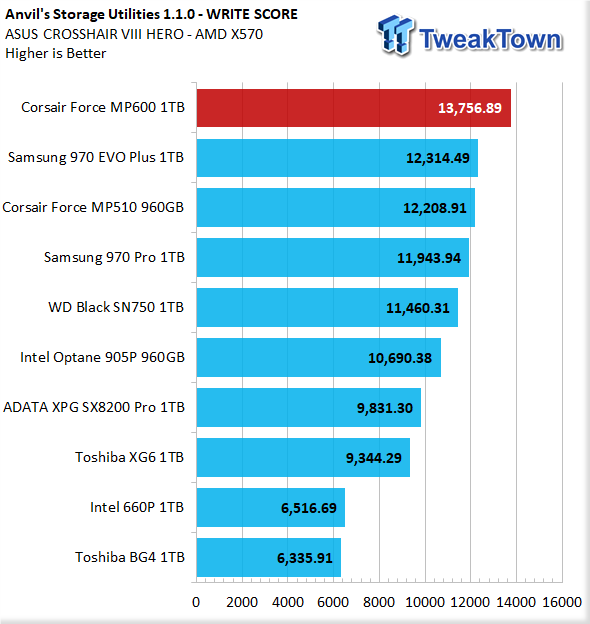
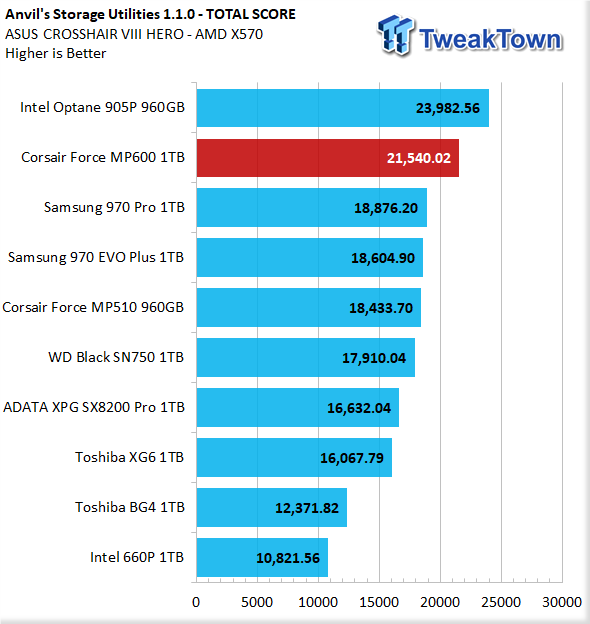
We place our highest value on the read score, and the MP600 does not disappoint. The MP600 easily outpaces the flash-based competition. The only SSD on our chart that can deliver better read performance is the 3D XPoint-based Intel Optane 905P, but keep in mind that is a $1,200 SSD.
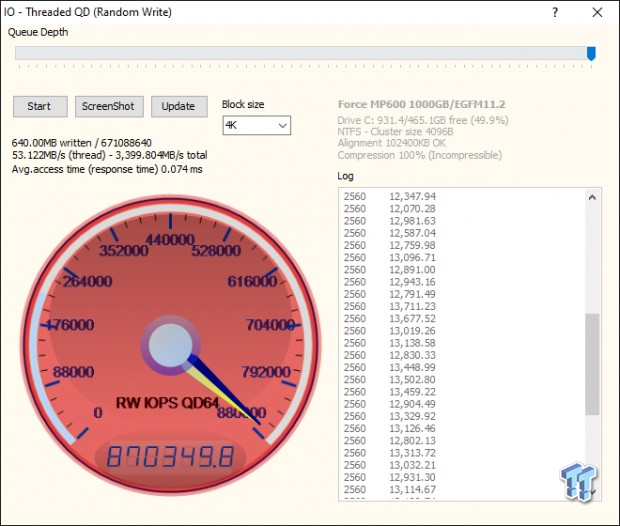
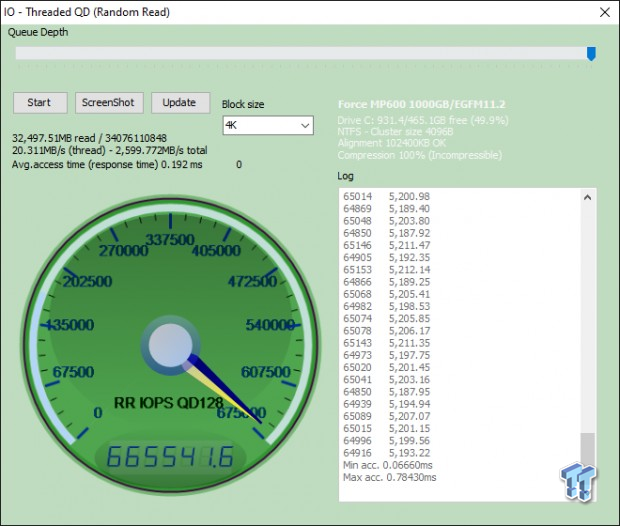
We don't place much importance on max IOPS, we are just showing what the drive can deliver while running in our test-state. That said, the numbers are quite impressive.
Synthetic Benchmarks: AS SSD & ATTO
AS SSD
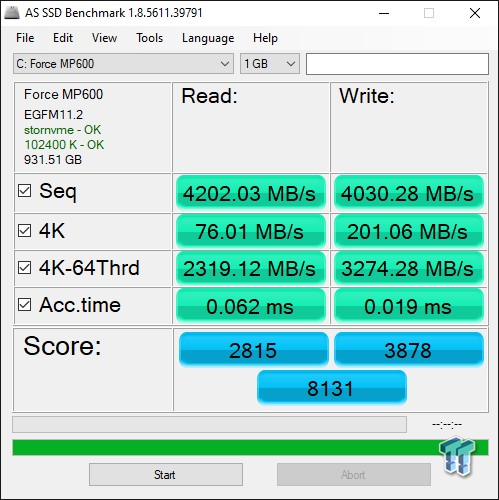
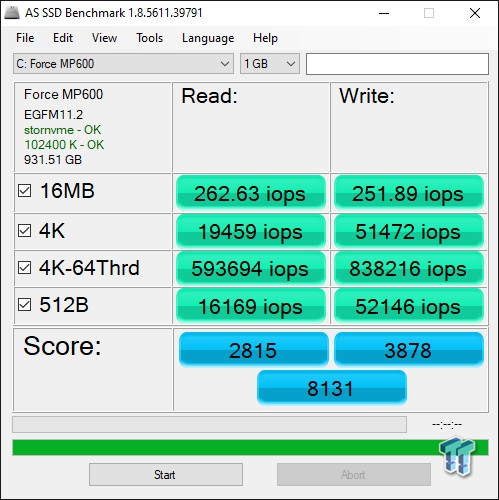
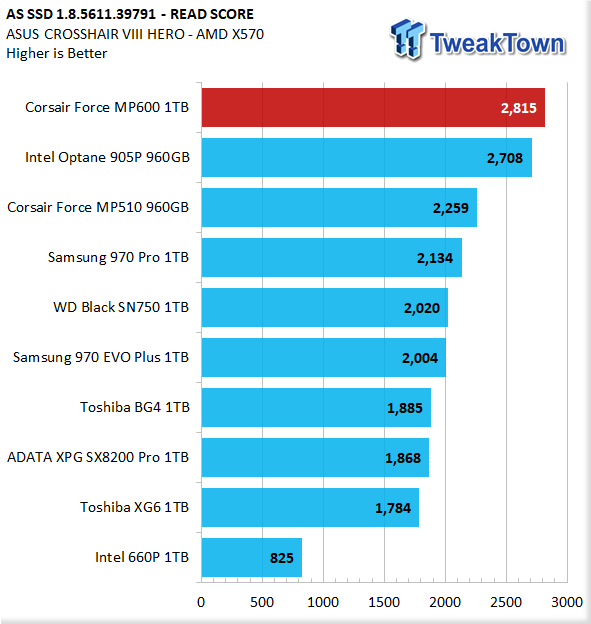
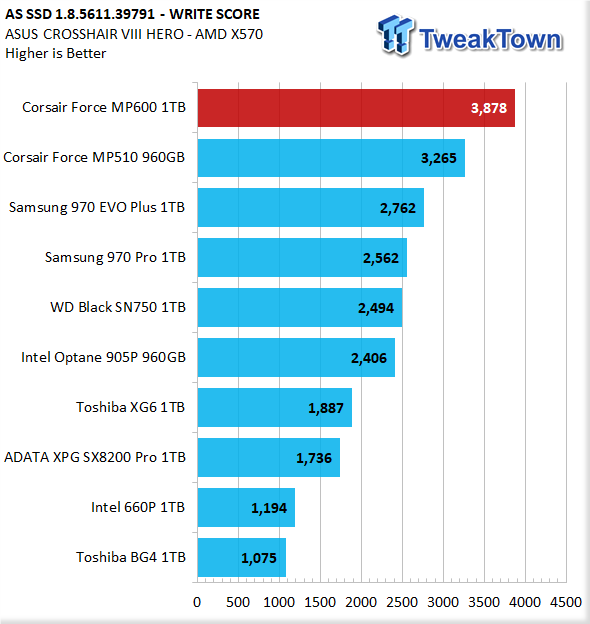
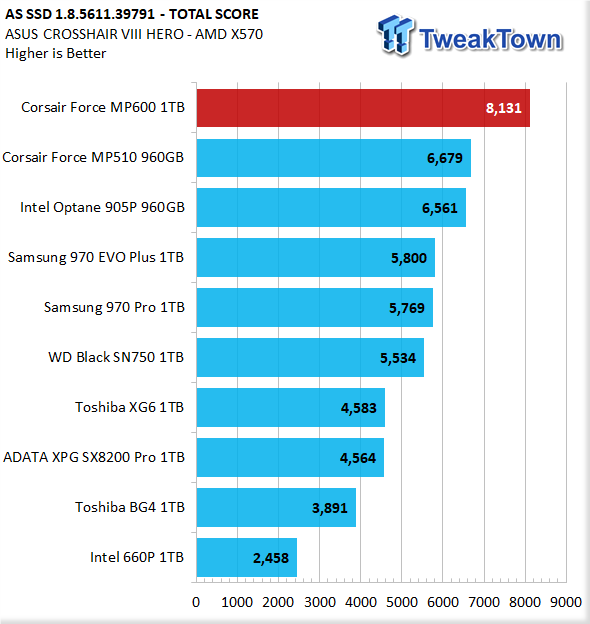
Here again, we are most interested in read scoring. This time the MP600 delivers the goods better than Intel's 3D XPoint powered Optane 905p. Compared to its flash-based competitors, the MP600 scores a minimum of 24.6 percent higher.
ATTO
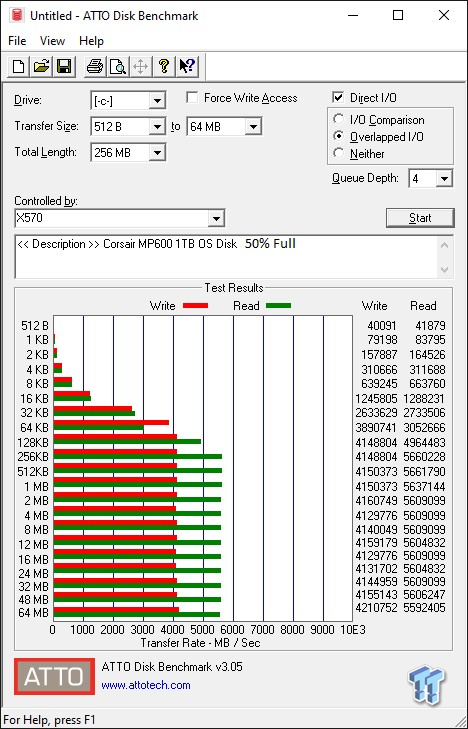
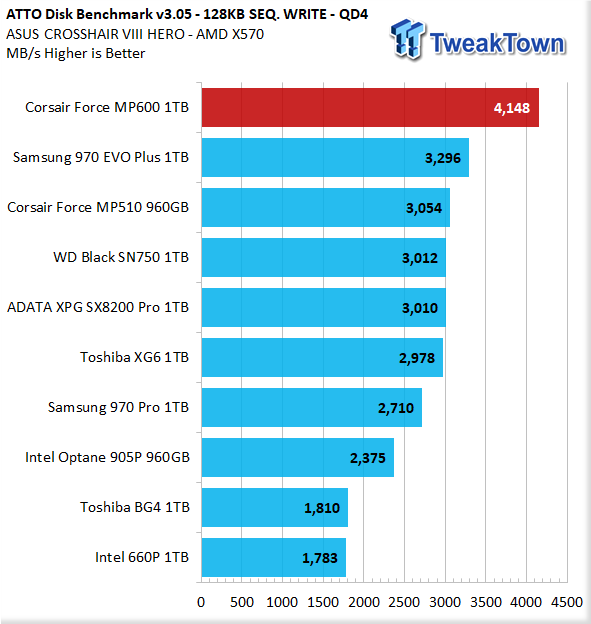
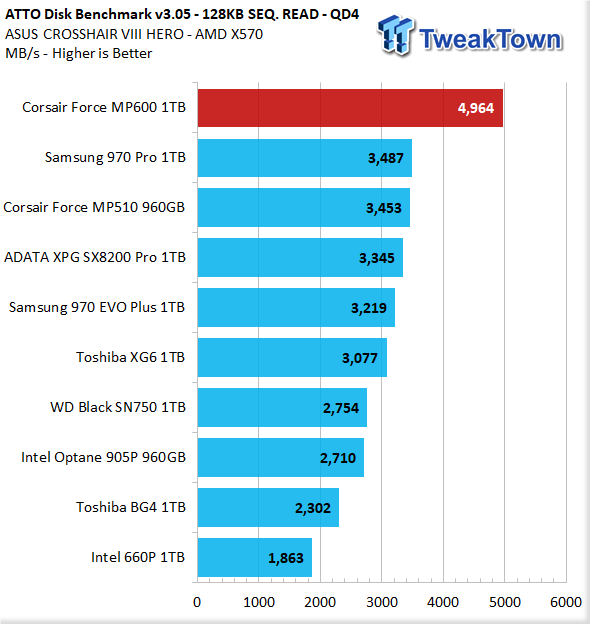
No, your eyes are not deceiving you, the MP600 is hitting 5.6GB/s sequential read. However, when judging performance with ATTO we are most interested in sequential performance at 128KB transfers. It comes as no surprise that the MP600 with its Gen4 interface easily vanquishes the Gen3 competition.
Real-World Testing: Game Loading & PCM8
Game Loading
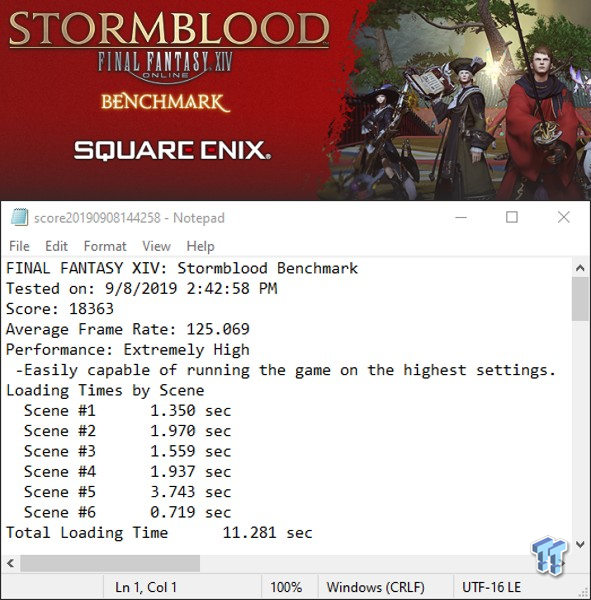
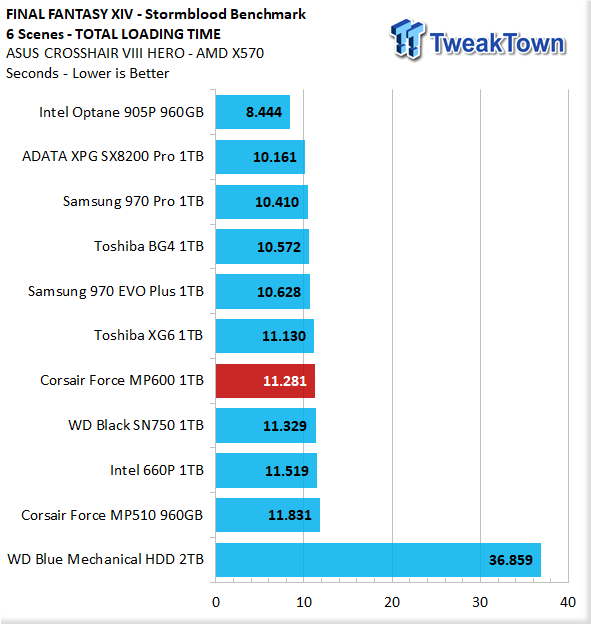
This benchmark is about the only place in all our testing that the MP600 doesn't eviscerate the flash-based competition. Although not the fastest, the MP600 is still plenty fast. Only about 1 second separates it from the top performing flash-based SSD on our chart.
We decided to showcase the extreme ends of the spectrum, by including a mechanical HDD for comparison. Man is it slow. At the opposite end, we have Optane, which is by far the fastest, but will cost you as much as moderate gaming system on its own.
PCMark 8
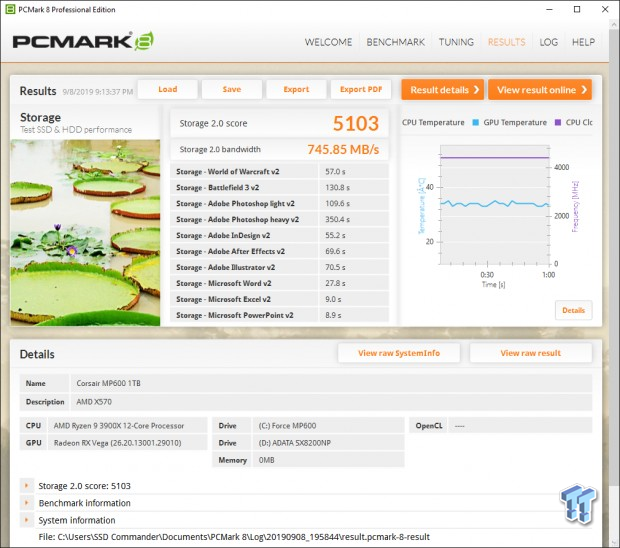
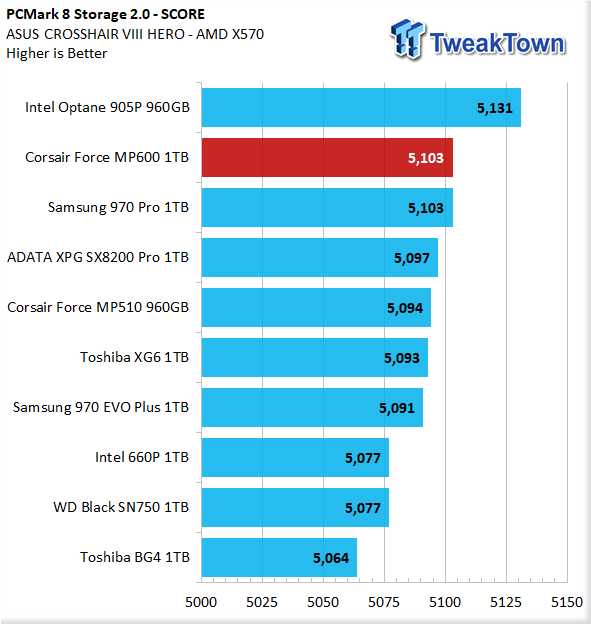
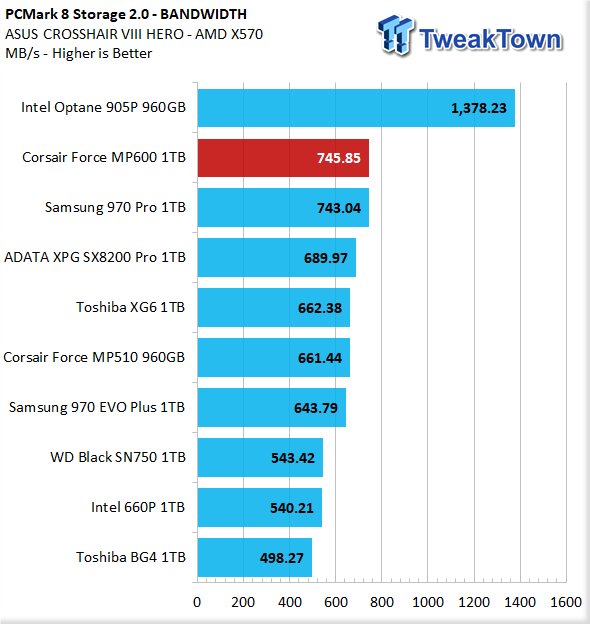
We feel that PCMark 8 storage test is the best indicator of real-world type performance, and as such we typically consider the winner of this test our current performance leader. The winner for all SSDs is not surprisingly Intel's Optane 905p. But it's powered by exotic and extremely expensive phase-change materials, so it's certainly not a mainstream SSD.
The rest of the SSDs on our chart are mainstream, and to our surprise the MP600 beats them all. What we find most impressive, is that the MP600 manages to outperform Samsung's 2-bit flash-based 970 Pro. Now that is saying something.
Real-World Testing: Transfer Rates
Transfer Rates
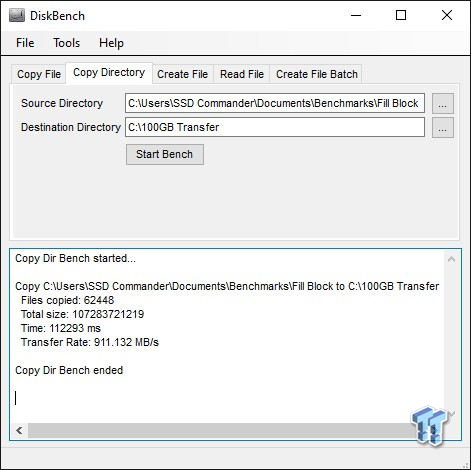
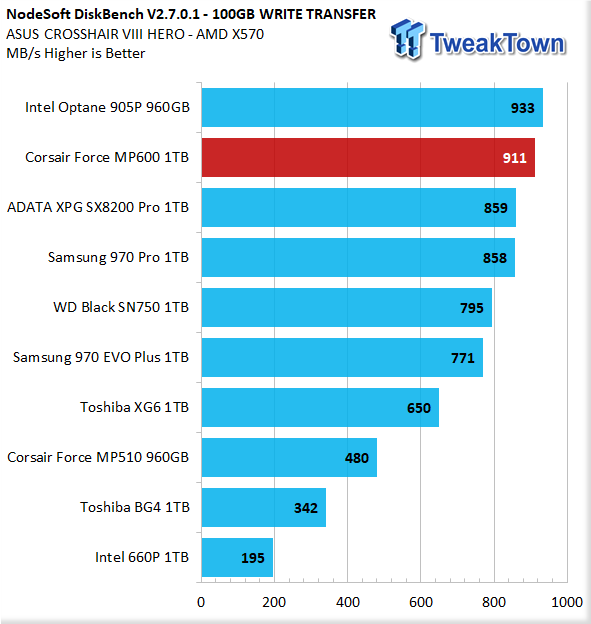
This is a big chunk of data composed of more than 62,000 files and 100GB in size. Transfers of this magnitude can be quite taxing on a test subject. Here again, we find the MP600 easily outperforming its flash-based brethren, and almost catching Intel's Optane 905p.
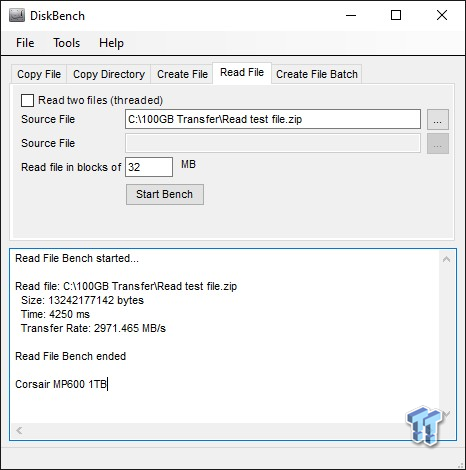
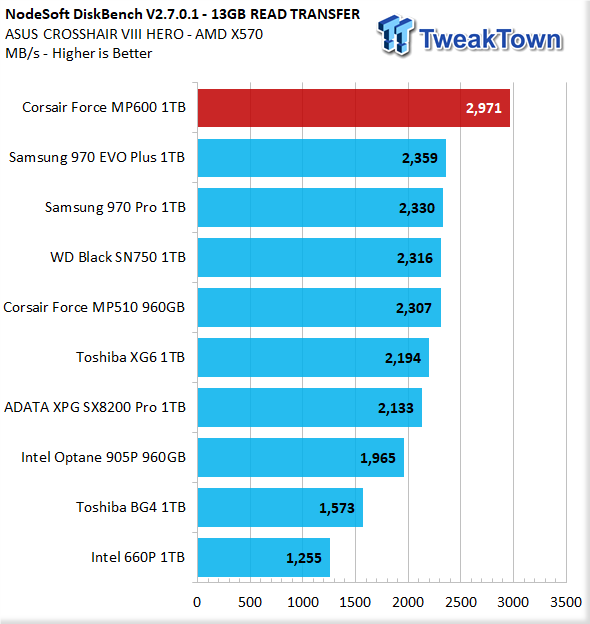
Reading chunks of data is where the MP600 really shines. The drive's Gen4 interface pays big dividends here as the MP600 stands far above any consumer SSD ever made. The MP600 transfers reads 26 percent faster than the next closest competitor, the 970 EVO Plus.
Final Thoughts
As our testing reveals, Phison powered Gen4 SSDs are the unquestioned performance leader for your Gen4 enabled AMD systems. Corsair's MP600 is an exquisite SSD and although it will cost you a bit more than some of the others, it is money well spent. The MP600 exemplifies quality from top to bottom. From its attractive and highly functional heat sink design, to its 5-year warranty, to its endurance rating - SSDs don't get much better than this.
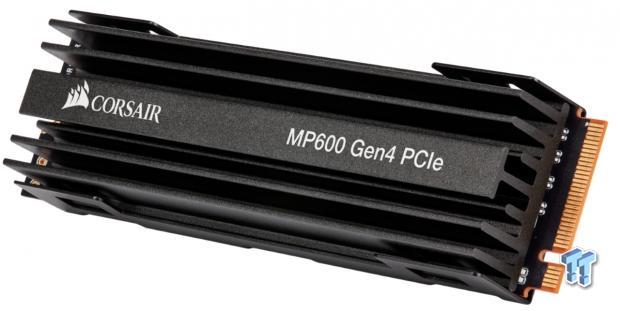
Phison and AMD are like brothers from another mother. They have both taken similar paths, playing the role of underdog for years. Barely on the radar of the industry leaders. Taking risks on forward thinking technology, investing all they have into the future. Well, their perseverance has finally paid off with both companies now being recognized as leaders in their respective industries.
Needless to say, Corsair's Force Series MP600 NVMe PCIe Gen4 x4 M.2 SSD is TweakTown approved and highly recommended.
Pros
- Overall Performance
- High Endurance
- Only Gen4 SSD
Cons
- None

Performance | 100% |
Quality | 100% |
Features | 100% |
Value | 90% |
Overall | 98% |
If you have PCIe Gen4 then Corsair's Phison-powered Force Series MP600 1TB SSD will deliver the best flash-based storage performance for your AMD powerhouse.

What's in Jon's PC?
- CPU: AMD Ryzen 7800X 3D
- MOTHERBOARD: GIGABYTE AORUS Master X670E
- RAM: Kingston Fury Renegade 7200MHz 32GB
- GPU: ZOTAC AMP Extreme GeForce RTX 4090
- SSD: Crucial T700 2TB Gen5
- OS: Windows 11 Pro
- COOLER: Lian Li Galahad 360 AIO
- CASE: Lian Li Lancool III
- KEYBOARD: Corsair K65 RGB Mini
- MOUSE: SteelSeries AEROX 5 Wireless
- MONITOR: ASUS ROG Strix PG27AQN 360Hz 1440p ULMB2
Similar Content
Related Tags


